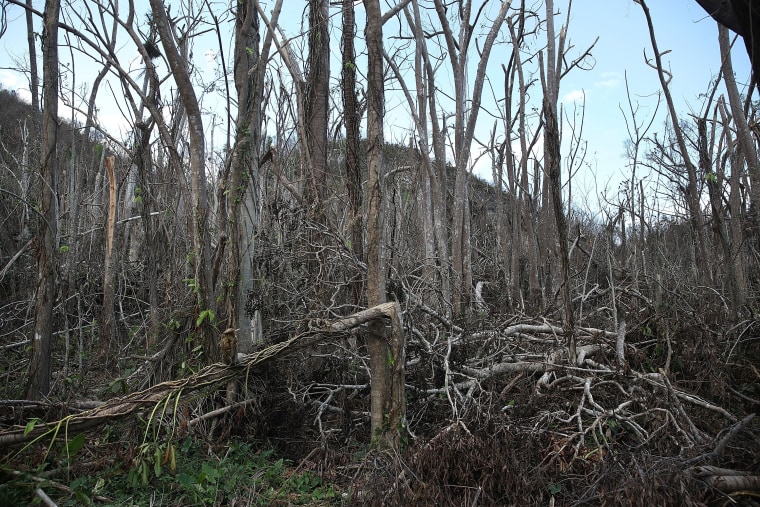As President Donald Trump visits Puerto Rico on Tuesday, here are a few answers to questions about the Caribbean island that was recently devastated by Hurricane Maria.
Puerto Ricans are U.S. citizens: Puerto Rico was a Spanish colony until the U.S. took control of the island after the Spanish-American War of 1898. In 1917, the U.S. granted citizenship to Puerto Ricans through the Jones-Shafroth Act. Puerto Ricans have U.S. passports.
Can Puerto Ricans travel freely and move freely to and from the U.S.? As U.S. citizens from a U.S. territory, Puerto Ricans can freely travel and move between the island and any of the 50 states of the union.
Americans don't need a passport to go to Puerto Rico and the island does not have a separate currency.
If Puerto Puerto is not a state, what is it? Puerto Rico is a commonwealth, or territory of the United States. Its local government consists of a governor elected every four years and a Senate and House of Representatives, but this local government only legislates over certain internal affairs.
RELATED: Puerto Ricans hope Trump gets an eyeful of the devastation
As a territory, the U.S. federal government controls all of Puerto Rico's commerce, trade, immigration and naturalization, military affairs, mail, highways, natural resources, Social Security and federal taxation and maritime law. Puerto Ricans have been and are an integral part of the U.S. military forces.
Can Puerto Ricans vote for U.S. president, Congress? Not if they live in the island. Since it's not a state, Puerto Ricans in the island don't vote in U.S. presidential elections and don't vote in U.S. congressional elections, though they do vote for presidential primaries.
Puerto Ricans in the island do vote for a resident commissioner who represents the island's interests in Washington, D.C., but is not a voting member of Congress.
However, Puerto Ricans who reside in the mainland U.S. vote do vote in U.S. elections. So that's the difference — Puerto Ricans who live on the island participate in local elections, and those who live in the U.S. vote in U.S. elections.

